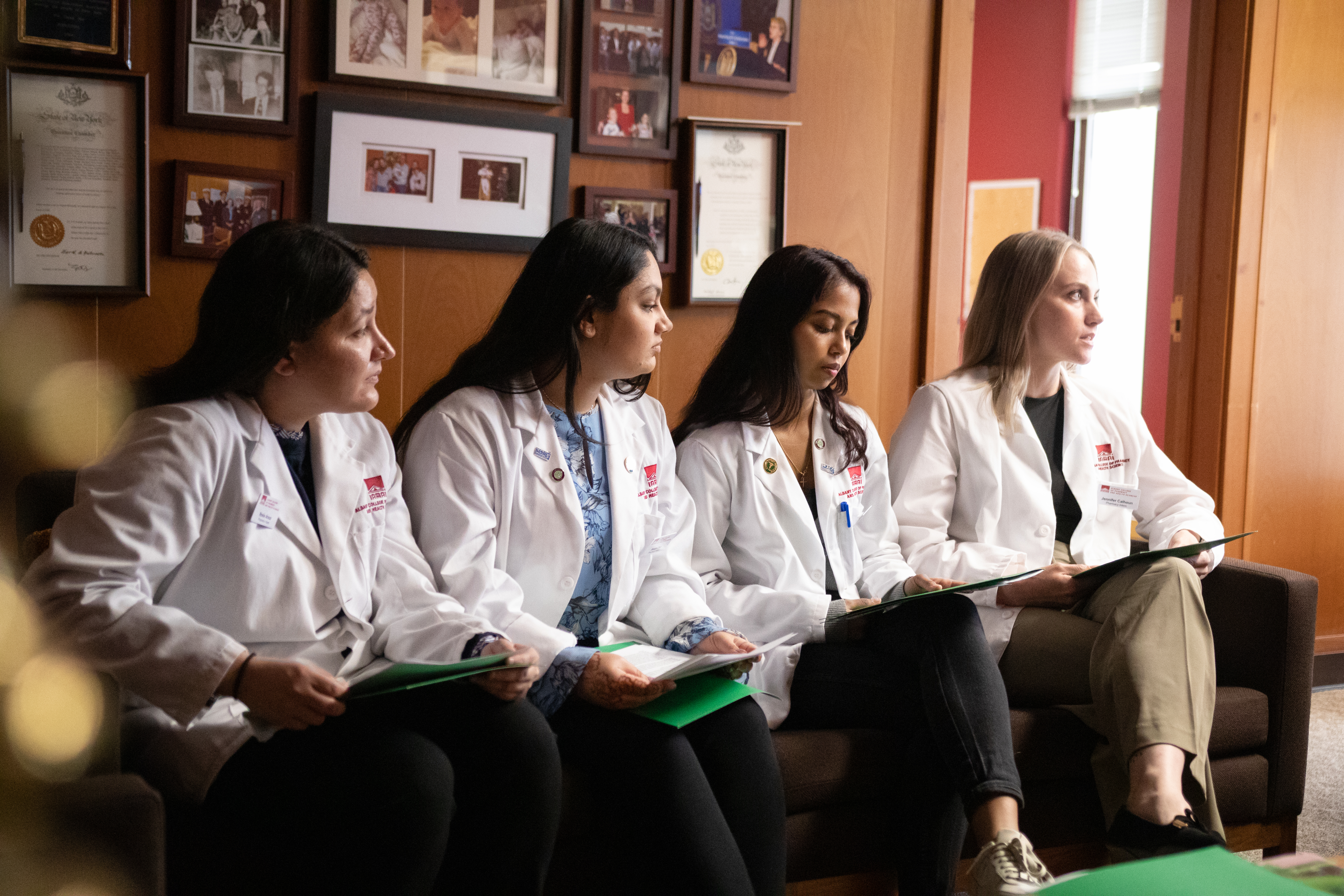
About 30 ACPHS students served as teachers at the Capitol Monday, educating Albany lawmakers about their profession and urging passage of bills that would permit pharmacists to practice at a level consistent with their knowledge and expertise.
The students joined faculty as well as working pharmacists for a lobby day hosted by the Pharmacy Society of the State of New York (PSSNY). ACPHS hosts a student chapter (SPSSNY) on campus.
The organizations’ focus in 2023 was on four bills that would expand pharmacists’ scope of practice in the following ways: increasing the types of long-acting injectable medications that pharmacists can administer for mental illness and substance use disorders; dispensing hormonal contraceptives through a standing order with a physician; adjusting medications prescribed to patients with chronic conditions in collaborative arrangements with a medical team; and ordering and administering simple laboratory tests that have a low risk of producing false results.
Pharmacy representatives spoke about New York’s poor ranking among states in the area of what pharmacists are permitted to do. Students in attendance got the message: their voices were needed in Albany.
“If we aren’t voices for our profession, I don’t know who would be,” said Ashley Monette, president elect of SPSSNY. “These legislators won’t know who we are and what we’re capable of.”
Several ACPHS students said they were spurred to participate in Lobby Day by what they have experienced in jobs, volunteer positions or rotations. Their concerns focused as much on patient needs as on their desire to advance their profession.
Julia Sexton works at a hospital pharmacy, where she sees patients come to the emergency department because they have not been able to reach their medical providers, in some cases due to physician shortages, or have run out of needed medications, including items as common as birth control pills.
“We should be able to have pharmacists play a bigger role in patient care when there’s a struggle for patients to see providers,” Sexton said.
One bill on the agenda, increasing the long-acting injectable medications that pharmacists can administer for substance use disorder, sparked the call to advocacy among some students who have seen firsthand the effects of the nation’s opioid epidemic on friends and family.
“One of my main reasons in coming to pharmacy school was to be able to treat people with substance use disorders,” said Jennifer Calhoun.
In addition to educating legislators, participating students got an up-close and personal view of the legislative process as well as a chance to network with professional pharmacists. Several concurred that the opportunity to be heard by government leaders was a bonus to studying pharmacy in Albany.
“No one’s going to express what I feel and what I want to say,” said Kelsey Watson. “I’ve been given a voice to say how I want things to be.”

